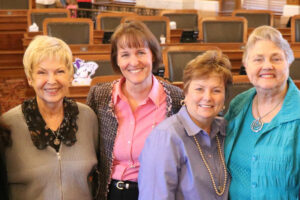Interview of Kenny Wilk, May 16, 2024
Interviewed by Chris Courtwright
Representative Kenny Wilk described himself as "curious" when he first arrived to the House--curious about how committees worked, who the people were. A Farm Bureau Citizenship Seminar had kindled his interest in politics. Rochelle Chronister, Assistant Majority Leader mentored him to meet everyone in both chambers. And he did! The interview is full of stories about the people with whom Wilk served, and what he learned from them. He moved from one area to another: budget policy, tax policy and economic development policy. He lost two leadership races, but that allowed him Show Moreto focus more intently on policy initiatives that came from committees he chaired: Kansas Bioscience Authority, the animal health corridor, NBAF, tax relief for military veterans, the Economic Growth Act, the tax exemption for machinery and equipment. Even after leaving the Kansas Legislature, he continued to serve. First, by chairing newly elected Governor Brownback's transition team, then by serving on the Kansas Board of Regents and the Kansas Bioscience Authority. His current job with the University of Kansas Health System keeps him involved with public policy issues, such as Medicaid Expansion. Show Less




